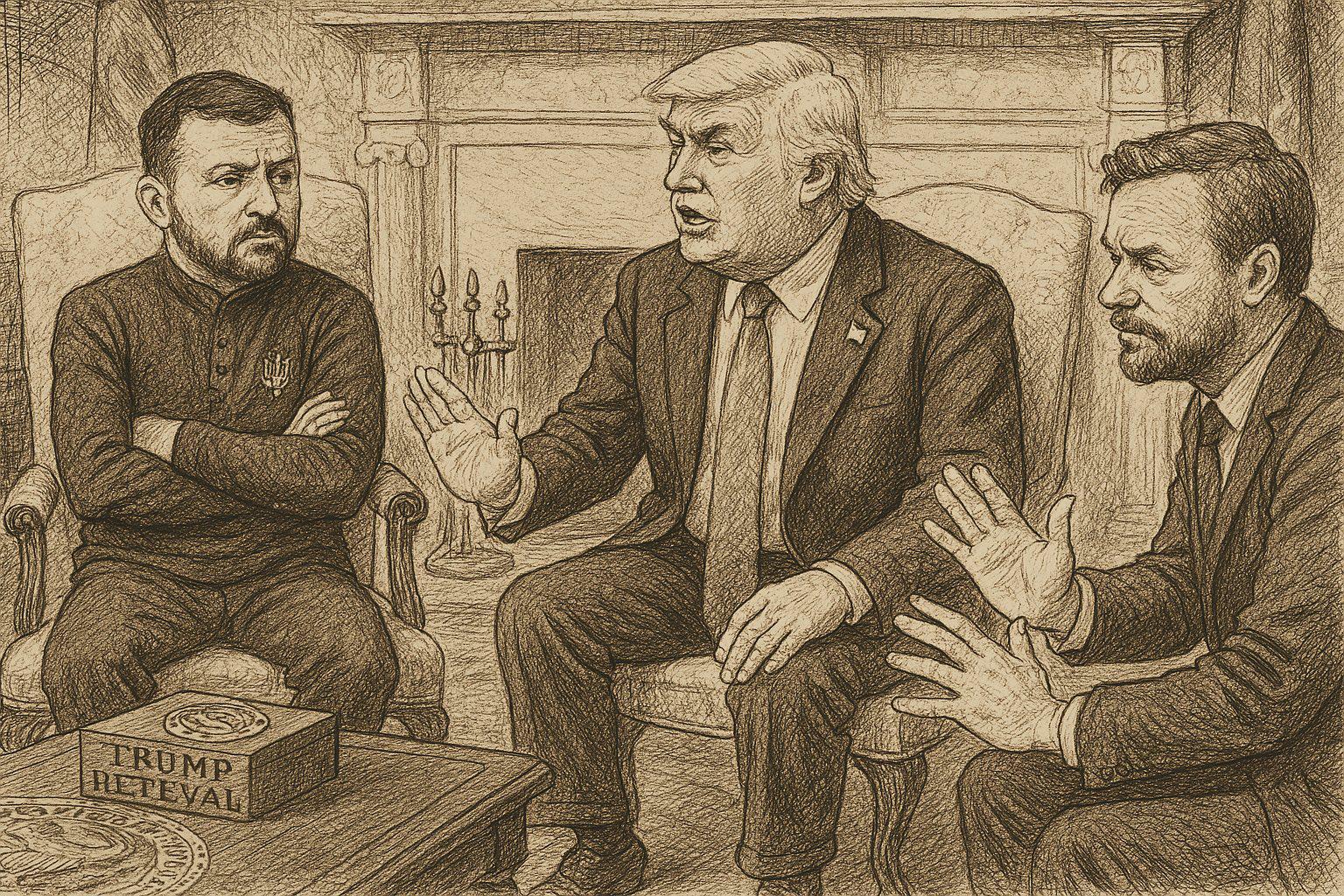Website designed with the B12 website builder. Create your own website today.
Start for free
The ongoing conflict in Ukraine has captured the world's attention in recent months, significantly impacting financial markets globally. As geopolitical tensions intensify and the far-reaching economic consequences become ever more apparent, a deep and comprehensive understanding of the implications stemming from the situation in Ukraine is now critically important for investors, policymakers, and informed citizens alike. This in-depth analysis will carefully examine the various complex ways in which this multifaceted geopolitical crisis is influencing and reshaping global market dynamics.
1. Geopolitical Uncertainty and Market Volatility
The deeply troubling conflict in Ukraine has fostered a pervasive climate of uncertainty that is actively undermining investor confidence across various asset classes. As international leaders convene regularly to deliberate on potential strategies, including diplomatic solutions, and the implementation of sanctions against aggressors, financial markets inevitably respond with periods of significantly heightened volatility. During these periods of amplified uncertainty and anxiety, investors frequently seek refuge and stability in perceived safer haven assets, such as the relative security of gold or the stability of government bonds. Consequently, equity markets, often seen as riskier investments, may experience noticeable declines as investors reduce their exposure. The prevailing and understandable apprehension regarding escalating tensions and the potential for wider conflict can easily precipitate sharp and often unpredictable price movements in various markets as traders and algorithmic trading systems react swiftly to evolving news headlines and geopolitical developments. This can create a challenging environment for both short-term and long-term investment strategies.
2. Energy Prices and Supply Chains
Ukraine plays an absolutely critical role as a vital transit corridor for the crucial supply of natural gas and oil from Russia to Europe. Any significant disruption within this strategically important region has the potential to trigger rapid and substantial surges in energy prices across the board, consequently affecting a wide spectrum of sectors, ranging from transportation and logistics to heavy manufacturing and power generation. As international discussions and negotiations progress, particularly those related to the imposition of sanctions against Russia or the provision of military assistance to Ukraine, the potential implications for global energy markets become increasingly pronounced and require close monitoring. Elevated and sustained high oil and gas prices can contribute significantly to inflationary pressures, impacting consumer spending habits and overall economic growth prospects, as businesses and individuals face higher energy costs. This can create a feedback loop of rising prices and reduced economic activity.
3. Global Trade and Economic Sanctions
International responses to the ongoing crisis in Ukraine have included the active consideration and subsequent implementation of various sanctions targeting specific Russian entities, influential organizations, and key individuals. Such measures, while intended to apply pressure and influence behavior, can also engender far-reaching and complex consequences for global trade patterns and established supply chains. Companies with significant dependencies on Russian resources, including raw materials, or substantial access to Russian markets, may encounter significant operational disruptions, which can directly affect their stock valuations and overall economic performance. This ripple effect extends considerably beyond the energy sector, potentially influencing companies across a wide array of diverse industries, including agriculture, technology, manufacturing, and consumer goods. The impact of sanctions on global trade is a multifaceted issue requiring careful analysis.
4. Currency Fluctuations
The complex geopolitical landscape surrounding the conflict in Ukraine exerts a considerable and often unpredictable influence on currency markets worldwide. As nations engage in coordinated responses to the unfolding situation in Ukraine, the domestic currency of nations viewed as stable and supportive may appreciate in value as investors seek the perceived stability and security of their assets. Conversely, nations geographically proximate to the conflict zone or those heavily reliant on trade with affected countries may witness a noticeable depreciation in the value of their currencies. These often-rapid currency fluctuations can significantly impact international trade costs, affecting the competitiveness of multinational corporations and potentially altering trade balances between nations. Understanding the drivers of currency movements is essential for businesses engaged in international commerce.
5. Long-term Market Trends
While short-term volatility undoubtedly presents immediate and pressing challenges for investors and businesses alike, the situation in Ukraine may also act as a catalyst for significant shifts in longer-term market trends and investment strategies. For instance, a sustained and intensified emphasis on achieving greater energy independence and diversification across Europe could stimulate substantial investment in renewable energy technologies, such as solar, wind, and hydrogen power. Similarly, alterations in defense spending patterns stemming from heightened security concerns across various regions can influence valuations within the defense sector and related industries, leading to increased investment and development in military technologies and equipment. The conflict in Ukraine is therefore likely to reshape investment priorities and accelerate certain pre-existing trends.
Conclusion
The situation in Ukraine presents multifaceted and far-reaching implications for global financial markets, creating both risks and opportunities. International decisions and diplomatic efforts aimed at managing the escalating crisis are being closely scrutinized by investors and financial analysts worldwide, who fully recognize the potential for rapid and dramatic changes in the global economic landscape. As we navigate this exceptionally complex and volatile environment, maintaining a well-informed perspective on the crucial intersections of geopolitics and finance is absolutely essential for making sound investment decisions and mitigating potential risks. Maintaining adaptability and responsiveness to rapidly changing market signals will be crucial for investors seeking to succeed in what is likely to remain an unpredictable and challenging environment for the foreseeable future. The broader implications of international actions and the complex web of international relations must be carefully and continuously considered as the situation continues to evolve, given their profound and lasting influence on the global economic landscape.